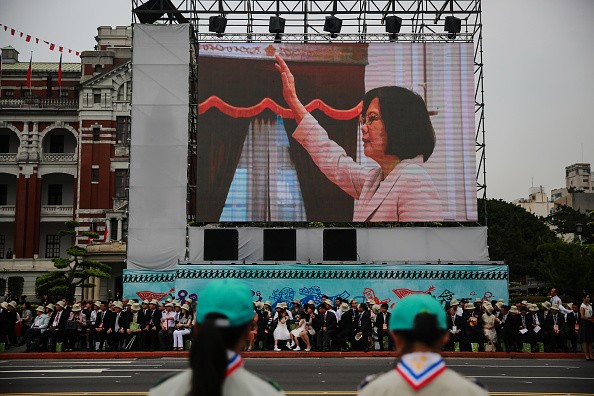China's office that is responsible for cross-Straits relations has urged Taiwan in improving the safety across its whole tourism sector. They also urged Taiwan to take measures in ensuring the safety of travelers from mainland China.
Local media reports stated that Taiwan's transportation authority will raise the daily quota for Chinese tourists from 5,000 to 6,000. They will also raise the number of days that tourists can stay from 15 days to 30 days.
Taiwan did this after statistics showed a drop in the number of mainland tourists visiting over the Spring Festival.
According to an annual list of most popular destinations for outbound tourists published by online travel agency Ctrip, Taiwan's rank dropped from fifth to ninth in 2016.
Data from Taiwan's Travel Agent Association showed that the number of mainland visitors had dropped by 20 percent during the Spring Festival compared to last year.
An Fengshan, a spokesman for the State Council Taiwan Affairs Office in Beijing, stated that the reason for the decline was "quite clear" and would only be reversed through improving the cross-Straits relations.
"The decline in mainland tourists has affected Taiwan's tourism industry and its economy," said Zhu Songling, a professor at the Institute of Taiwan Studies of Beijing Union University.
The relations between China and Taiwan have been tense ever since Tsai Ing-wen took office as Taiwan's new President on May 20.
Tsai failed to acknowledge the one-China Policy, suspending the official channels of cross-Straits communication.
According to Ma Xiaoguang, another spokesman for the State Council Taiwan Affairs Office, "The 1992 Consensus has damaged all the hard work toward peaceful relations across the Taiwan Straits. Whoever started the trouble should end it."
The situation of the relations was further compounded when Donald Trump, the current U.S. president, challenged the one-China policy by taking a congratulatory call from Tsai. She called shortly after Trump won the presidential elections.
The Foreign Ministry of China has called on the new U.S. administration to limit its relationship with Taiwan to a nonofficial level and stick to the one-China principle.



























